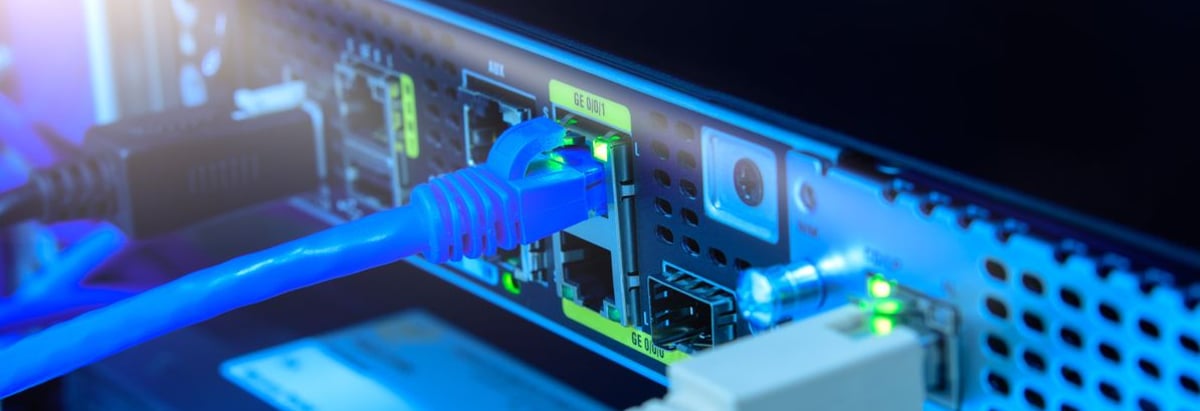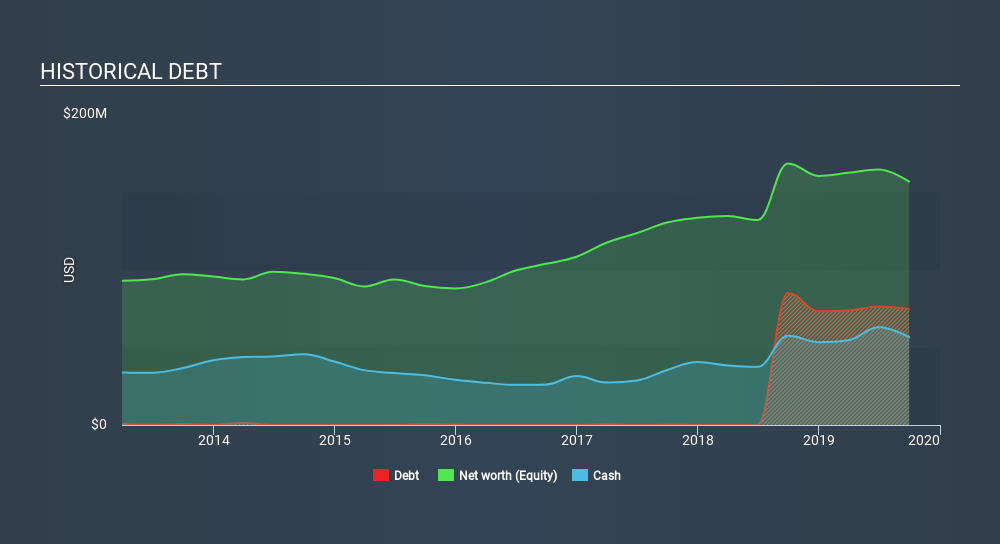- United States
- /
- Communications
- /
- NasdaqGS:ITRN
Here's Why Ituran Location and Control (NASDAQ:ITRN) Can Manage Its Debt Responsibly

The external fund manager backed by Berkshire Hathaway's Charlie Munger, Li Lu, makes no bones about it when he says 'The biggest investment risk is not the volatility of prices, but whether you will suffer a permanent loss of capital. So it seems the smart money knows that debt - which is usually involved in bankruptcies - is a very important factor, when you assess how risky a company is. Importantly, Ituran Location and Control Ltd. (NASDAQ:ITRN) does carry debt. But should shareholders be worried about its use of debt?
When Is Debt Dangerous?
Debt assists a business until the business has trouble paying it off, either with new capital or with free cash flow. In the worst case scenario, a company can go bankrupt if it cannot pay its creditors. However, a more common (but still painful) scenario is that it has to raise new equity capital at a low price, thus permanently diluting shareholders. Of course, plenty of companies use debt to fund growth, without any negative consequences. The first thing to do when considering how much debt a business uses is to look at its cash and debt together.
View our latest analysis for Ituran Location and Control
What Is Ituran Location and Control's Debt?
The image below, which you can click on for greater detail, shows that at September 2019 Ituran Location and Control had debt of US$74.5m, up from US$84.9 in one year. However, it also had US$56.5m in cash, and so its net debt is US$18.0m.

A Look At Ituran Location and Control's Liabilities
The latest balance sheet data shows that Ituran Location and Control had liabilities of US$102.7m due within a year, and liabilities of US$104.9m falling due after that. Offsetting these obligations, it had cash of US$56.5m as well as receivables valued at US$48.7m due within 12 months. So it has liabilities totalling US$102.5m more than its cash and near-term receivables, combined.
Of course, Ituran Location and Control has a market capitalization of US$525.0m, so these liabilities are probably manageable. Having said that, it's clear that we should continue to monitor its balance sheet, lest it change for the worse.
We use two main ratios to inform us about debt levels relative to earnings. The first is net debt divided by earnings before interest, tax, depreciation, and amortization (EBITDA), while the second is how many times its earnings before interest and tax (EBIT) covers its interest expense (or its interest cover, for short). This way, we consider both the absolute quantum of the debt, as well as the interest rates paid on it.
Ituran Location and Control has a low net debt to EBITDA ratio of only 0.23. And its EBIT easily covers its interest expense, being 12.3 times the size. So we're pretty relaxed about its super-conservative use of debt. But the other side of the story is that Ituran Location and Control saw its EBIT decline by 2.4% over the last year. That sort of decline, if sustained, will obviously make debt harder to handle. When analysing debt levels, the balance sheet is the obvious place to start. But ultimately the future profitability of the business will decide if Ituran Location and Control can strengthen its balance sheet over time. So if you want to see what the professionals think, you might find this free report on analyst profit forecasts to be interesting.
Finally, a company can only pay off debt with cold hard cash, not accounting profits. So it's worth checking how much of that EBIT is backed by free cash flow. During the last three years, Ituran Location and Control produced sturdy free cash flow equating to 57% of its EBIT, about what we'd expect. This cold hard cash means it can reduce its debt when it wants to.
Our View
Ituran Location and Control's interest cover suggests it can handle its debt as easily as Cristiano Ronaldo could score a goal against an under 14's goalkeeper. But, on a more sombre note, we are a little concerned by its EBIT growth rate. Looking at all the aforementioned factors together, it strikes us that Ituran Location and Control can handle its debt fairly comfortably. Of course, while this leverage can enhance returns on equity, it does bring more risk, so it's worth keeping an eye on this one. When analysing debt levels, the balance sheet is the obvious place to start. But ultimately, every company can contain risks that exist outside of the balance sheet. For instance, we've identified 3 warning signs for Ituran Location and Control that you should be aware of.
If, after all that, you're more interested in a fast growing company with a rock-solid balance sheet, then check out our list of net cash growth stocks without delay.
If you spot an error that warrants correction, please contact the editor at editorial-team@simplywallst.com. This article by Simply Wall St is general in nature. It does not constitute a recommendation to buy or sell any stock, and does not take account of your objectives, or your financial situation. Simply Wall St has no position in the stocks mentioned.
We aim to bring you long-term focused research analysis driven by fundamental data. Note that our analysis may not factor in the latest price-sensitive company announcements or qualitative material. Thank you for reading.
About NasdaqGS:ITRN
Ituran Location and Control
Provides location-based telematics services and machine-to-machine telematics products in Israel, Brazil, and internationally.
Flawless balance sheet established dividend payer.
Market Insights
Community Narratives



